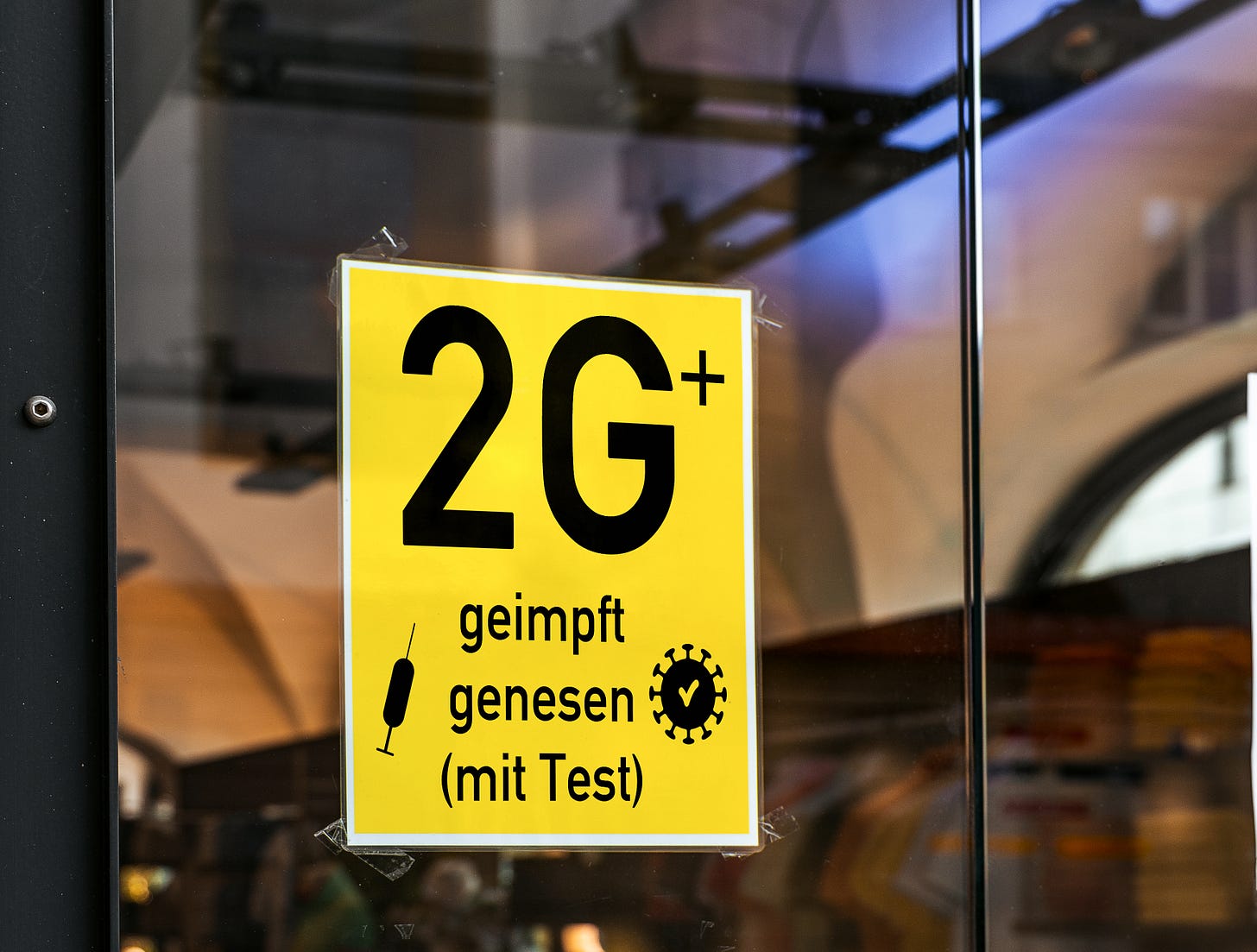Understanding German Covid lingo
Dear Reader,
In today’s newsletter I’m providing a simple breakdown of the lingo used in German Covid rules. Hopefully this’ll help you the next time a shop clerk barks a phrase like Impfpass at you and you still aren’t sure what it means.
So, on the subject of Impfpass… this is a form of proof that you have been vaccinated. It can either be the paper version (a little yellow booklet) or a digital one. You can store your digital vaccine passport on the Corona-Warn-App or in the more basic Covpass app.
Where do you need to show your Impfpass?
Well, it gets a little complicated here. The rules vary depending on how quickly the coronavirus is spreading through your local area.
But a good rule of thumb is that access to buildings where you have to do essential business does not require you to show any proof of vaccination, testing or recovery.
That means that supermarkets, post offices and banks for instance still have no rules at their doors other than that you must wear a mask and that you maintain distance from other customers. The requirement to wear a mask is called a Masken-pflicht; distancing rules are noted with the words Abstand halten.
The Maskenpflicht currently applies in classrooms in all schools.
‘Non-essential’ shops, such as fashion outlets or toy stores, are currently only able to allow people into their premises who have been vaccinated or who have recovered. This is know as the 2G Regel. Since the start of December, the 2G rule applies to shops such as Karstadt, Galeria and other high street chains.
The less essential a location is to basic survival, the stricter the entry rules are likely to be. Administrative buildings tend to allow entry based on 3G, meaning they are open to everyone including unvaccinated people with a negative test. But bars, clubs, sports and cultural venues have to obey 2G rules.
Why are they called 2G and 3G? That’s an abbreviation of the German words Geimpft, Genesen and Getestet.
In recent weeks a new piece of terminology has been added called 2G plus. This places an additional hurdle to entry on the customer: You have to be vaccinated or recovered… and have proof of a negative test. This entry hurdle can be applied by state governments at their discretion.
If it’s any consolation, keeping on top of the rules is just as difficult for Germans as it is for foreigners. They change from week to week and vary from state to state. Unless you’re reading the news every day, you are likely to be caught out at some point.
Another important word to know is Kontaktbeschränkungen, which refers to the number of people who are allowed to meet in one place. There are currently restrictions on sports venues, meaning that they are only allowed to sell tickets for half of their seats.
There are also restrictions on private contacts for the unvaccinated in some states. In Lower Saxony for example, they are only allowed to meet two other people at a time. These measures have been called a Lockdown der Ungeimpften.
The sharp witted among you will by now have noticed the repetition of the four letters i-m-p-f, which make up the root of words to do with vaccines.
The verb is impfen - to vaccinate. And a vaccine is an Impf-stoff. A vaccinated person is a Ge-impf-te and an unvaccinated person an an Un-ge-impf-te.
Essentially, if you are vaccinated the rules are a bother but generally allow you to go about your everyday life. If you are unvaccinated life will be pretty grey until at least March.
At that point the government might decide to up the pressure even further be introducing an Impf-pflicht - compulsory vaccines. Opponents of such measures, which have already been legislated for public health professionals, call it an Impf-zwang (forced vaccination).



